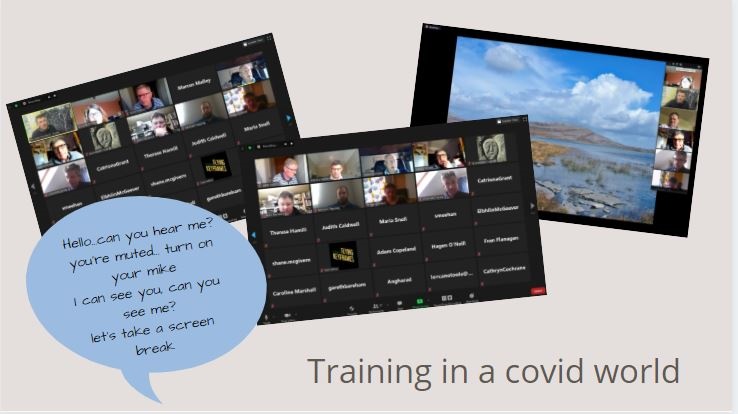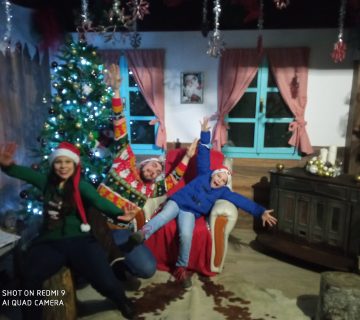Taking advantage of online technology to provide a spark and light some fires to help staff understand the skill involved in interpretive writing.
Take a bunch of scientists – ecologists, ornithologists, geologists and chemists. Add one major interpretive project that they are, of course, all able to write content for themselves, because after all, they can write, can’t they? and they do know their science better than anyone! And what do you get…? Maybe not the best interpretive panels!
But a solution is at hand, even with the problems of Covid-19 preventing face-to-face training here in Ireland. That solution came in the form of IE trainer, Janja Sivec, who was more than willing to work with the CANN project (Collaborative Action for the Natura Network) to deliver an ‘Interpretive Writing Lite’ course over a single morning using the online platform Zoom.
The course linked 20+ partners and stakeholders from Scotland, Ireland and Northern Ireland through the ether to Slovenia where Janja presented from her home office. The atmosphere was as good as if we had all been in a room learning together and there wasn’t a moment where the team members weren’t fully engaged.
Starting with a concise history of interpretation and a brief study of the theory with some excellent examples, interspersed with lovely practical and visual exercises and regular use of the breakout rooms to get small groups working together, we used the full gamut of the Zoom platform to enjoy a varied, interactive training session.
The pace was mixed, which was essential as anyone who has sat through endless Zoom meetings knows what a difficult task it is to keep people concentrating on a screen for hours on end. But by using simple tools and exercises to get us up from our office chairs and changing the focus of our eyes and minds by taking a trip to our front doors, Janja kept us asking for more.
I work as an outreach officer for the CANN project and organising this introductory course has made my job a lot easier. My biggest task next year will be to develop interpretation for all our sites, and I have confidence now that we will be able to speak with the individual site managers knowing that they understand the basic principles of heritage interpretation. That they understand why and how the professionals work as they do and maybe at least know what they don’t know. I also believe that the next time the participants are asked to “do a panel” for a site, they might understand that this is not such a simple job and that just laminating science facts and a few pretty pictures on to a board is not enough. I know that they all understand at least some of the tools and skills needed and will work to expand their knowledge further in the future. This mini course lit some interpretive fires and long may they burn.
Abby McSherry is an outreach officer for the CANN project – The Collaborative Action for the Natura Network. The project is funded by the EU’s INTERREG VA programme managed by the SEUPB with match funding from the national governments of Ireland, Northern Ireland and Scotland. To find out more visit www.TheCANNproject.org. Abby can be contacted at: Abby.McSherry@nmandd.org.
To cite this article:
McSherry, Abby (2020) ‘Zooming through the basics of interpretive writing’. In Interpret Europe Newsletter 4-2020, 27.
Available online: https://www.interpret-europe.net/fileadmin/Documents/publications/Newsletters/IE_newsletter_2020_4_winter.pdf


